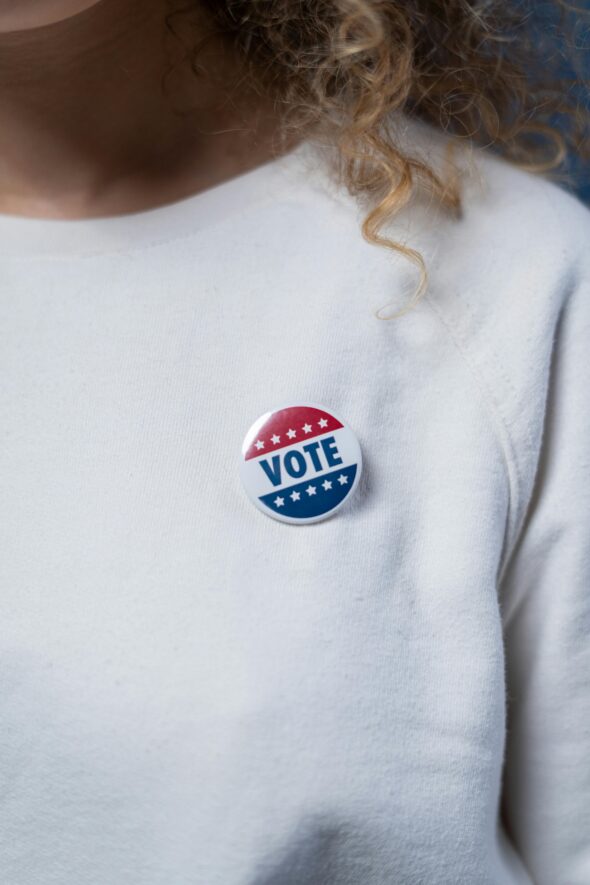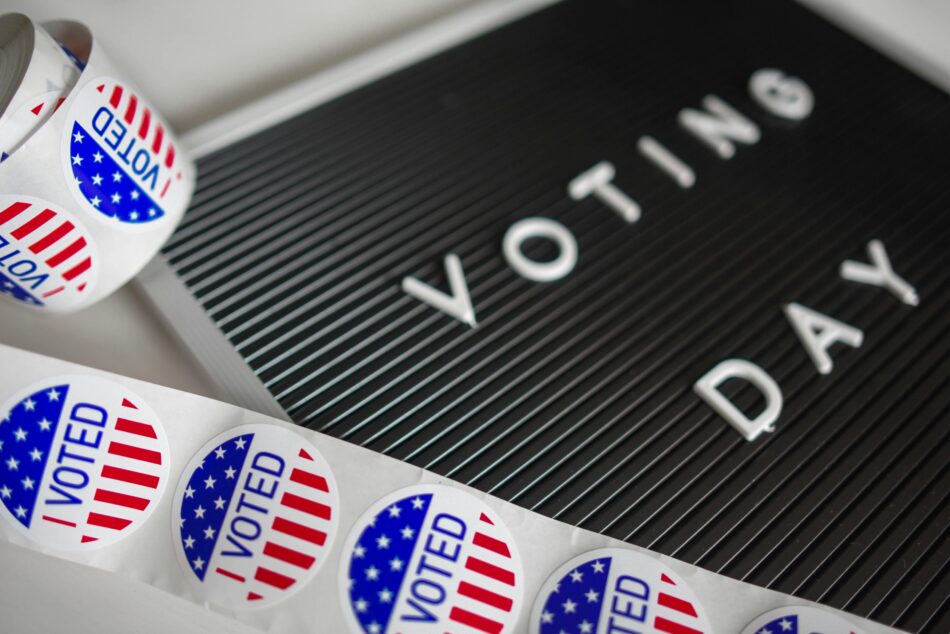In one of the most significant elections in history, Donald J. Trump, the Republican candidate, won both the popular vote and all of the swing states. The outcome has left many feeling discouraged, as the political leanings of their states make them believe their vote didn’t matter.
Phillip Alexander, an essential worker and resident of a red state, shared his perspective on why he feels this way.
Alexander is a 35-year-old Black man from rural West Virginia and has never voted in the presidential election and had no plans to do so. A lifelong West Virginian, Alexander has worked as an EMT first-responder for 11 years. Because of mandates like voting rights he feels disconnected from national politics.
“I’ve never felt like voting even when they originally gave Black people a chance to vote,” said Alexander. “I feel like that all was a plan, period.”
“That all was a plan to stop the talk, stop the crying, stop the marching, stop the sittings. You see what I’m saying? It never was in our favor. So I mean, I just feel like a lot of things that they saying is for ‘us.’ It’s not necessarily for us.”
According to the Pew Research Center, 66% of the voting population turned out for the 2020 presidential election — the highest rate for any national election since 1900, yet a leading population of voters think their vote doesn’t matter due to their perception of impact, electoral systems, voter suppression, and access issues. In the 2024 election, Vice President Kamala Harris secured approximately 67 million votes, a significant drop from the 81 million votes President Biden garnered in 2020, indicating a notable decline in Democratic voter turnout.
Lagina Gause, an associate professor of political science at the University of California, discussed and highlighted factors of access issues where mobilizers often focus on white middle-class communities.
“Being in places where mobilizers want to go. So a lot of people who are on campaigns tend to be white, college educated, middle class, and so they go to the communities that they know and those networks,” said Gause.
“But also people tend to be asked to vote more or engage more when they’re in certain types of jobs and professions and education.”
Access issues are a significant barrier that can discourage people from voting.
Elicia Jefferson, a 53 year woman living in Georgia, highlighted how access to information and voter outreach programs can make a significant difference in voter participation.
In the 1990s, voter registration initiatives in places like welfare offices, as part of the National Voter Registration Act of 1993, helped increase voter access by making it easier for people to register. Case workers offering the opportunity to register while providing services gave people from marginalized communities their first real chance to engage in the voting process.
“People weren’t voting. People who were receiving government assistance didn’t vote,” said Jefferson.
“Sometime in the 90’s, I used to be on government assistance in my younger days, and when I went to the Department of Human Services, your caseworker started offering you voting cards there,” she added.
“You could fill out the card and register to vote. Basically, registering to vote was made more available for you. And all you had to do was fill out the card simply and give it to the caseworker.”

(Photo courtesy of cottonbro studio / PEXELS.)
While access issues are a common reason people don’t vote, the perception that a state is solidly “blue” or “red” also discourages voter participation. When people feel their vote won’t make a difference because their state consistently leans toward one political party, they may feel disillusioned or like their vote won’t change the outcome. This perception of “pre-determined” results can reduce motivation to vote, particularly in presidential or statewide elections. But because of the impact of local elections an individual’s vote can have a much greater influence.
In a red state like West Virginia, Alexander prefers voting in local elections because that’s where he feels his vote matters. Driven by his personal connections to the candidates — his former grade school principal is now the mayor, and he knows the sheriff. These relationships inspire him to engage locally.
“I feel like local elections are actually counted. I feel like local elections actually make a difference,” said Alexander.
“That’s just because it is smaller, especially in places like West Virginia. It’s just smaller and those votes matter to everybody around here even to the person being voted for.”
One can say that a vote in West Virginia may seem insignificant with strong Republican leanings. However, even in swing states, where more attention from politicians is focused, the perception that individual votes matter more remains prevalent. Under the current system, a handful of swing states like Georgia receive the most attention from presidential candidates because they are more likely to decide the outcome of the election. This leaves the majority of states, especially those considered “safe” for one party, largely ignored in national campaigns, giving a disproportionate influence to a small number of voters.
Voters in states that aren’t considered battlegrounds often feel their votes have little impact, which can contribute to lower turnout. In states like West Virginia, where one party holds a dominant position, this sentiment is especially common.
“I’ve actually never voted. I don’t necessarily believe in the power of the presidency at all necessarily,” said Alexander.
“I feel like the powers that be is a lot deeper than the presidency and they really don’t have any control over what’s going on in our country. So my opinion is that my vote necessarily don’t matter.”
Many people feel that systems like the electoral college are the main reason their vote doesn’t count. The Electoral College gives smaller, less populous states more electoral power per capita than larger states according to The Economist. For example, a state like Wyoming, with a small population, has three electoral votes, while California, the most populous state, has 55 votes. When you calculate the ratio of electors to the population, voters in smaller states have a much larger influence on the outcome of the election than those in more populous states.
Citizens like Jefferson, who is indecisive on voting, expressed her grievances about the electoral college, because of this system she believes her vote doesn’t matter.
“Because there’s the electoral college, I just personally don’t feel like my vote really counts,” said Jefferson.
If we eliminated the electoral college, would voter participation increase? Many speculate that without this system, people might feel their individual votes carry more weight, potentially encouraging higher turnout.
In a national election, every vote matters as it provides citizens with a direct way to influence the future of their communities, the country, and the policies that impact their daily lives. However, various factors can lead some people to abstain from voting. These barriers can contribute to voter disengagement, especially in communities where the state’s vote is predetermined.



